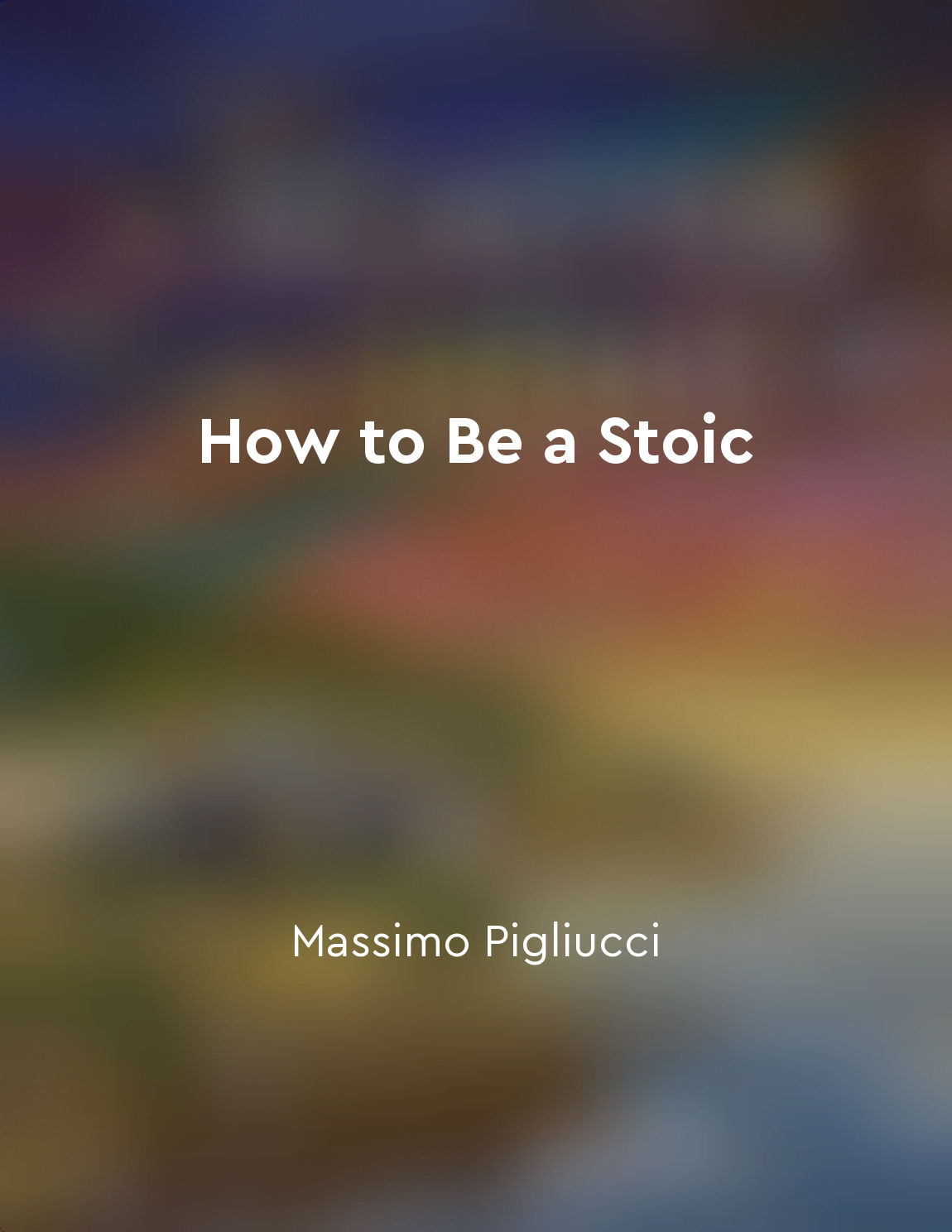The Stoic life is one of inner freedom and peace of mind from "summary" of The Stoic Life by Tad Brennan
The Stoics believed that true happiness and freedom come from within, rather than from external circumstances. They taught that by cultivating a sense of inner peace and tranquility, one could become immune to the ups and downs of life. This inner freedom allows individuals to maintain a sense of contentment and equanimity, regardless of what may be happening around them. Central to the Stoic philosophy is the idea that we have control over our own thoughts and reactions. By learning to accept what we cannot change and focusing on what is within our power, we can free ourselves from unnecessary worries and anxieties. This shift in mindset enables us to approach life with a sense of calm and clarity, rather than being driven by fear or desire. Stoicism also emphasizes the importance of living in accordance with nature and reason. By aligning our actions with the principles of virtue and wisdom, we can live a life that is harmonious and in tune with the world around us. This ethical framework provides a solid foundation for making decisions and navigating the complexities of everyday life. Through practices such as mindfulness, self-reflection, and self-discipline, Stoics seek to cultivate a sense of inner peace and resilience. By developing a strong sense of self-control and inner strength, individuals can weather the storms of life with grace and dignity. This inner freedom allows us to remain grounded and centered, even in the face of adversity.- The Stoic life is one of inner freedom and peace of mind. By embracing these core principles and practices, individuals can cultivate a deep sense of contentment and tranquility that is not dependent on external circumstances. This inner peace allows us to navigate life's challenges with wisdom and grace, leading to a life that is truly fulfilling and meaningful.
Similar Posts
Applying reason and logic to our emotions can help us make better decisions
When we are faced with difficult decisions or challenging situations, our emotions can often cloud our judgment and lead us ast...

Acceptance of things beyond our control is a key Stoic teaching
The Stoics teach us to recognize the limits of our control. They remind us that there are some things in life that are simply b...
Stoics believed in practicing resilience and endurance
The Stoics championed the virtues of resilience and endurance, believing that these qualities were essential for leading a good...
Inner tranquility is attainable through Stoic principles
The Stoic philosophers of ancient Greece believed that inner tranquility was attainable by living according to their principles...
Stoicism taught the value of enduring hardships and challenges
The Stoics believed that enduring hardships and challenges was central to living a good life. They argued that the key to happi...
Stoics see challenges as opportunities for growth and selfdiscovery
Stoics believe that challenges are not obstacles to be avoided, but rather opportunities for personal growth and self-discovery...

The Stoic concept of the dichotomy of control
The Stoics believed that some things in life are within our control while others are not. This distinction is crucial for maint...
The Stoics believed in cultivating inner peace
The Stoics were firm believers in the importance of cultivating inner peace as a key component of leading a virtuous and fulfil...

Cultivate a sense of inner peace and contentment
The Stoics believed that cultivating a sense of inner peace and contentment is crucial for leading a good and fulfilling life. ...
Stoicism advocates for charity and compassion
Stoicism, as a philosophy, places a strong emphasis on the importance of charity and compassion towards others. The Stoics beli...

